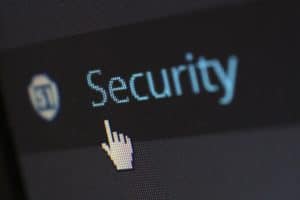
Identity theft is something most adults think about at some point in their lives. Whether someone you know has been a victim of identity theft, or it has happened to you- identity theft is something you should be thinking about.
It can be incredibly messy to clean up after an identity thief. From reporting fraud, disputing transactions, and placing additional freezes on your account- you can quickly see the easiest thing to do about identity theft is to prevent it in the first place.
The thing to remember here is that you cannot fully protect yourself against identity theft. There are great steps to take to prevent identity theft, but we are not playing a secure game. Identity thieves are smarter than ever, so you have to try to protect yourself from the very beginning.
Here are a few quick tips to be proactive in protecting your credit and your life from an identity thief.
- Place credit freezes
- Secure your electronics
- Keep an eye on open accounts
- Order free credit reports
Place credit freezes:
A credit freeze is an amazing tool that starts with the credit bureaus. Basically what a credit freeze does is stop people from running your credit history without your permission. You contact the credit bureaus and place a freeze, and then when someone attempts to run your credit you are alerted. You either provide your secure PIN or decline the credit pull because it was fraudulent.
This is like getting in on the ground floor. Stopping thieves before they can even begin. You can easily place a credit freeze by calling or sending mail to the credit bureaus. Here are some additional step actions to show you how easy it is to freeze your credit.
Secure your electronics:
Scammers are getting better and better at diving into the world of electronics. They can take your information and use it before you even know what is happening. So, a great step to prevent identity theft is to take a look at your electronic devices.
- How secure are your passwords?
- How often do you change your passwords?
- Do you use one password for everything?
Start by changing your passwords to be unique to each platform you use. This means don’t have the same password for your email, banking, and personal needs. Make your passwords longer, and be sure to include uppercase, numbers, and symbols to help your password be more secure.
It can be tedious changing all of your passwords, but it is a great step to take to be proactive in protecting yourself against identity theft. Additionally, don’t open any emails you don’t recognize. And never click on links sent in an email from an unknown source. These links can contain viruses, which allow hackers to take over your computer and act on your behalf without your permission!
Keep an eye on open accounts:
One of the best ways to protect yourself against identity theft is to be diligent in checking your open accounts. You can sign up for credit reporting for free, and set up alerts whenever a new account is opened in your name. With these alerts, you will be able to act quickly if something comes up on your credit report that you do not recognize.
This also allows you to keep an eye on your credit score. Credit Absolute provides valuable tips to lower your monthly payments and gives awesome ways to improve your credit score easily.
Order free credit reports:
Did you know that you are entitled to a free credit report every 12 months from each of the credit bureaus? Transunion, Equifax, and Experian all offer this service, free of charge. Keeping track of your credit reports is very important in protecting yourself against identity theft.
The FTC provides easy instructions for claiming your free credit reports on their website.
If you don’t like requesting things online, they even have a number you can call to make this request over the phone.
Protecting yourself against identity theft is very important. By taking a few simple steps, you can make a real difference in enhancing the security of your identity. Keep an eye on your credit report, protect yourself online, and freeze your credit for an additional layer of security.